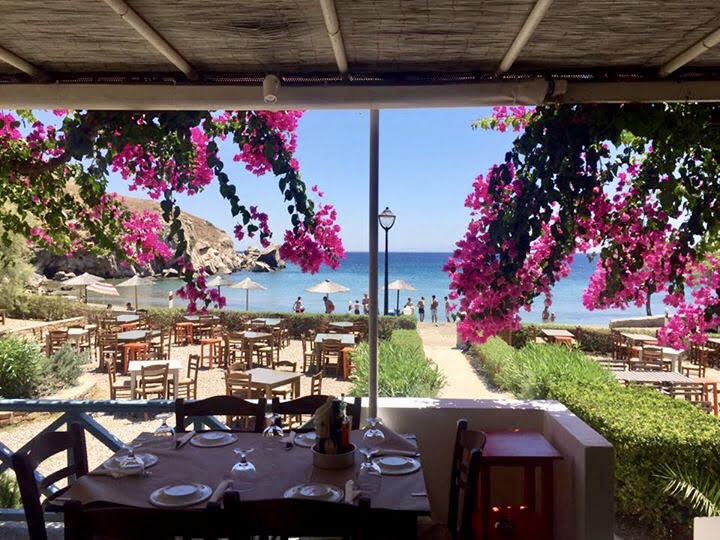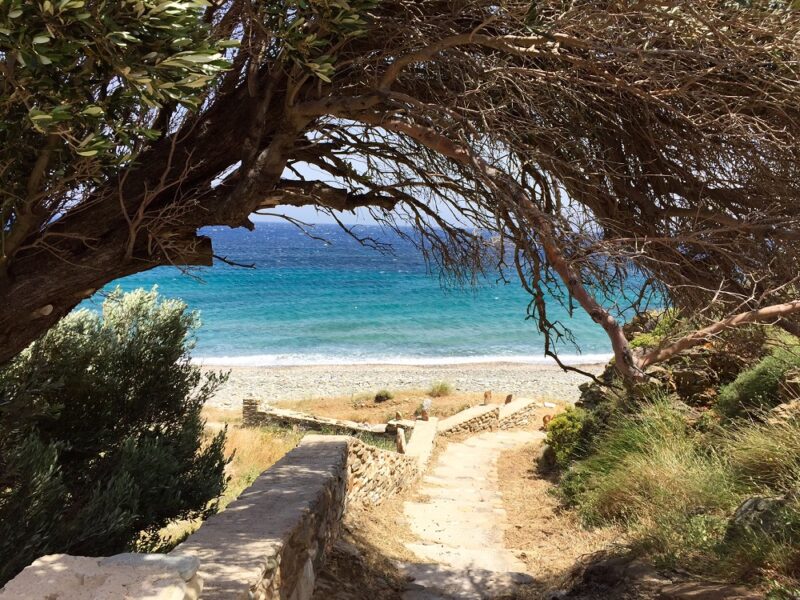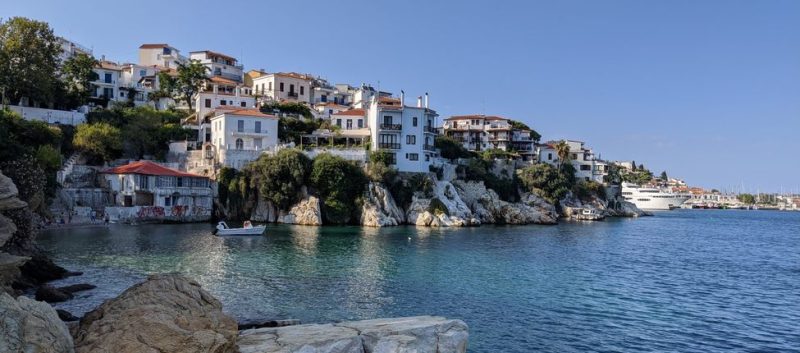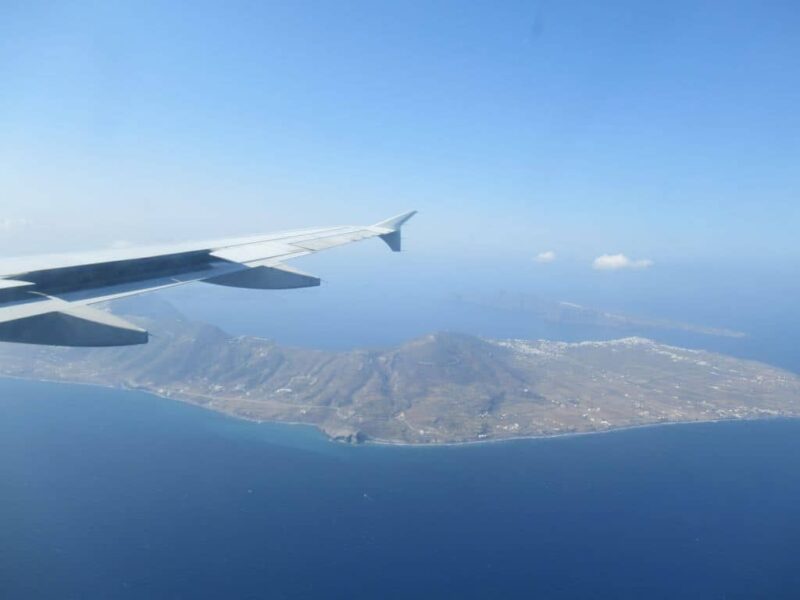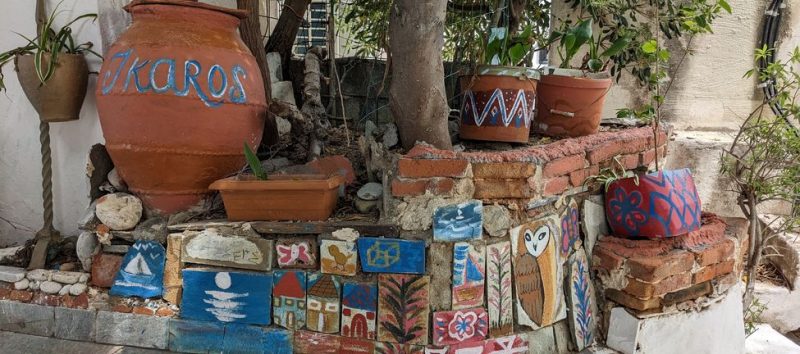When the boat drops anchor in Syros, even for a short stopover, it’s swarmed by merchants offering rose loukoums and almond sweets, transporting the traveler to the courts of the sultans and the palaces of the Renaissance…
Because Syros is made that way. It has always lived between two cults, vacillating between wealth and poverty, sudden rise and spectacular fall. Nevertheless, she has always been the grande dame of the Cyclades archipelago.
Ermoupoli, the capital of Syros, is also the country capital. No little white houses. Here, imposing buildings, mansions and “neoclassical” public buildings dominate, bearing witness to the city’s past as the country’s most important port.
Syros, the great lady with two faces
Invaders from different cultures have passed through over the centuries, refugees have been welcomed on its soil, and various religious cults have tried to win the faith of its inhabitants. From all this, the island has created its distinctive face: cosmopolitan, multicultural and always open to the world. Today, the layers of architecture in its capital, the Catholic and Orthodox churches each standing proudly on two opposing hills and, of course, its cuisine, sometimes simple, sometimes sophisticated, with its diverse influences, bear witness to this.
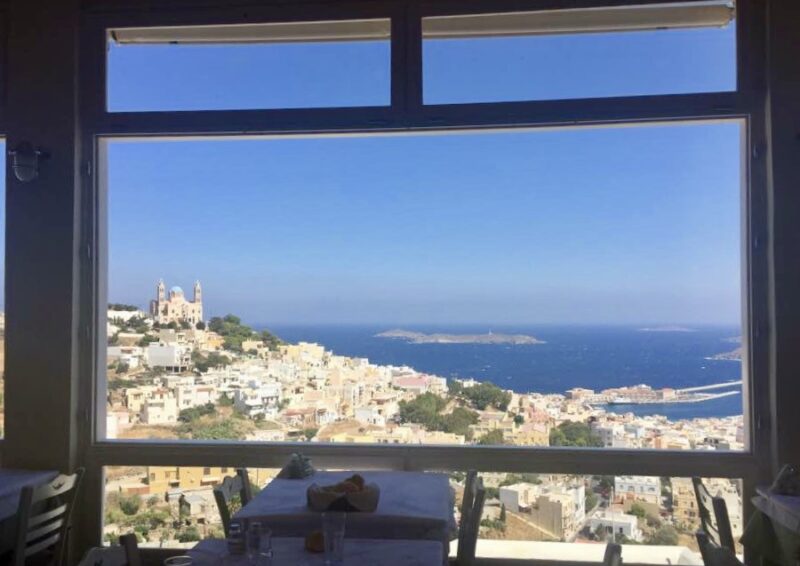
An exception in Greece: cow’s milk cheese
Catholic monks settled in Syros from the 13th century onwards, converting the local population to Catholicism. At the same time, they brought their culinary habits with them: cow breeding, for example. The Cyclades islands are probably the only places in Greece where cheese is made from pure cow’s milk.
The local Syros cheese, San Michali, is a real marvel. Fruity, delicate, buttery and golden in color, San Michali is similar to Parmesan. Use as shavings in salads, cooked on the barbecue, or enjoy as is, with a good dry white wine.
Syros, agriculture
In reality, Syros is an island facing the sea. Ermoupoli, which means city of Hermes, bore its name well into the 19th century. It was here in 1833 that the first college of the fledgling Greek state was inaugurated, and it was here that the Apollo Theatre, designed to the standards of the great European theaters, operated. Ironically, however, Syros, proud of its wealth from maritime trade, has completely abandoned its agricultural production. As a result, its inhabitants literally starved to death during the Second World War.
Syros, gastronomy made simple
The island is rather arid, and little can be grown on its soil. In Syros, the traditional cuisine is simple, but that doesn’t mean it isn’t rich in flavor and quality.
- Lard herbs such as oregano, thyme and wild garlic add a delicious aroma to meat and game dishes.
- Capers, available on every rock, on every steep coast, are used fresh or in vinegar, in buds or leaves to flavor various specialties. Examples include caper salad, caper and dill fritters, lamb or fish with fresh caper leaves.
- Maidanosalata, a kind of local pesto, is also truly typical of Syros.
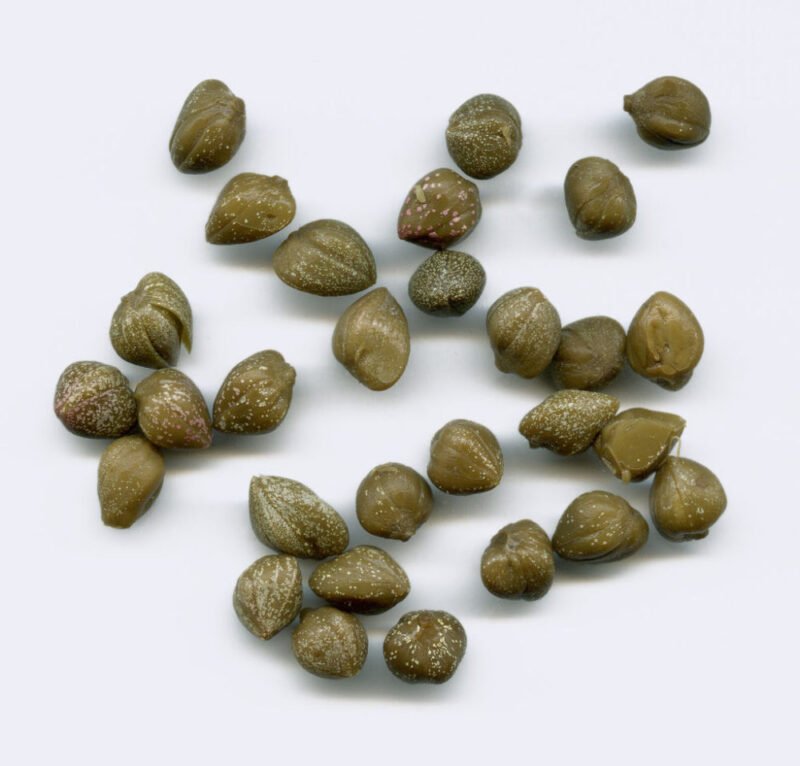
Syros delicatessen
Another special feature of Syros’ cuisine is its long tradition of charcuterie, a rarity in Greece. I’m sure it’s all thanks to those bloody Catholic monks who wanted to move abroad, but couldn’t do without the sausage! Adapting to their adopted country, they have spiced up their delicatessens with the ingredients available.
- Syros sausages are flavored with garlic and fennel seeds. They are an essential ingredient in “froutalia”, the local omelette.
- “Sissyra” are also famous. This is fatty bacon cut into lardons, fried until nicely toasted and then served with lemon juice.
- Finally, “louza” is a raw, salted and sun-dried charcuterie made from pork tenderloins, also found on Mykonos or Tinos. In Syros, louza is flavored with pepper, cinnamon and cloves.
Syros delicacies
But Syros is best known for its sweets.
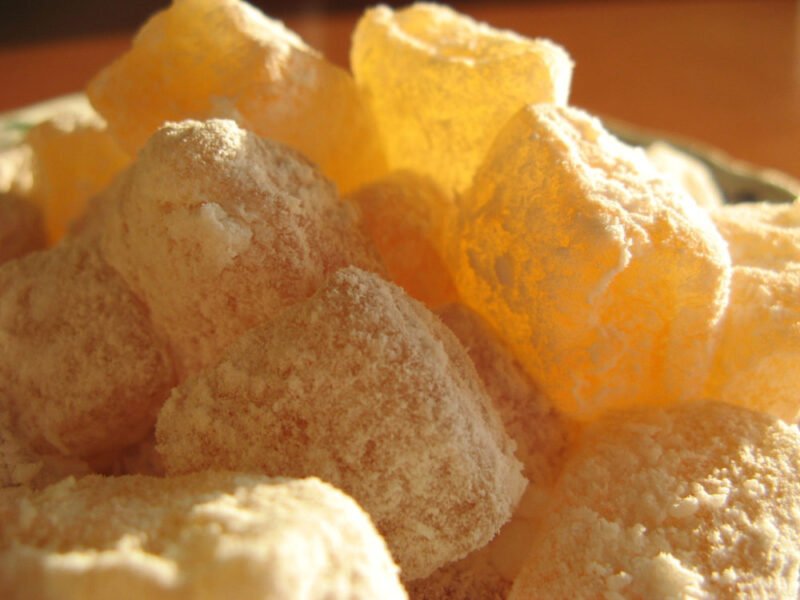
- Melt-in-the-mouth loukoums with scents of rose, honey, pistachio, mastic, bergamot… Loukoums weren’t born in Syros. But they’ve adapted to it so well that when you hear the word “island”, you always think of it. Indeed, during the war of independence, many inhabitants of the islands of Chios, Psara and Asia Minor took refuge in Syros, which enjoyed special privileges. They were largely responsible for the island’s spectacular development and brought their own, much more oriental cuisine. It’s to them that we owe the loukoums.
- Amygdalota (almond sweets)
- Halvadopita, nougat sandwiched between two layers of thin, crisp pastry.
Even if you don’t get off the boat, the merchants will come to meet you. It’s delicious! If this article has made your mouth water, come and discover Syros and its multi-influenced cuisine.
Evi S.
